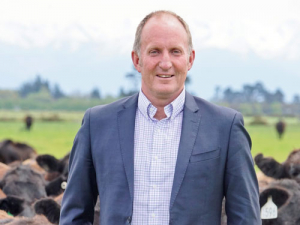Lack of skilled labour is a huge issue for sheep and beef farmers – and the meat industry as a whole.
That's the claim by Beef+LambNZ chairman, Andrew Morrison.
He says it’s not only affecting the situation on-farm, but the processing industry as well.
Morrison believes it’s having a particular impact on the sheep side of the business and is one of the reasons for the decline in sheep numbers.
“Sheep work is hard and as farmers get older they are turning to finishing beef cattle, which is easier,” he told Rural News. “In the meat works the lack of skilled labour means that it is harder to extract the maximum value from a cattle beast and turn out high value cuts.”
Morrison says this issue is occurring at a time when sheep meat prices are good and there is an urgent to sort out the issue of vocational training. He says farmers are very supportive of the initiatives.
“The issue of farmer morale is interesting because with the good prices they are happy. But speaking to the local tractor salesmen they are having very lean years because farmers are in ‘wait and see mode’ and wondering how they are going to get through all the challenges they are facing.
“They are saying rather than buying a new tractor, should I buy a bunch of fence posts and more trees to address my fresh water, biodiversity and carbon issues.”
He believes, in many respects, the rural community is being challenged more than the on-farm community.
Meanwhile, Morrison says the entry of China into the beef market is fundamentally a good thing for NZ in the long term. He says we need multiple markets in order to maximise prices.
“China is doing that, and shortly Beef+LambNZ will be introducing its ‘taste pure nature’ brand into that market.”
Morrison says the aim is to show that our meat is grass fed and has a good provenance story, which will appeal to consumers.
There has been talk that the US China free trade agreement (FTA)
has the potential to negatively
affect NZ if quantities of American agricultural products are exported to China. But Morrison says irrespective of trade deals it’s the demand for quality products that will be a key driver.
“Because we can validate our production systems through our quality assurance programmes through ‘taste pure nature’; there will always be people who want the product that aligns with their beliefs,” he told Rural News. “These are around a whole range of issue including production systems, animal welfare, how we embrace environmental issues and how we treat staff.”
Morrison says NZ’s stance on such issues will help us gain favourable trade deals.


















